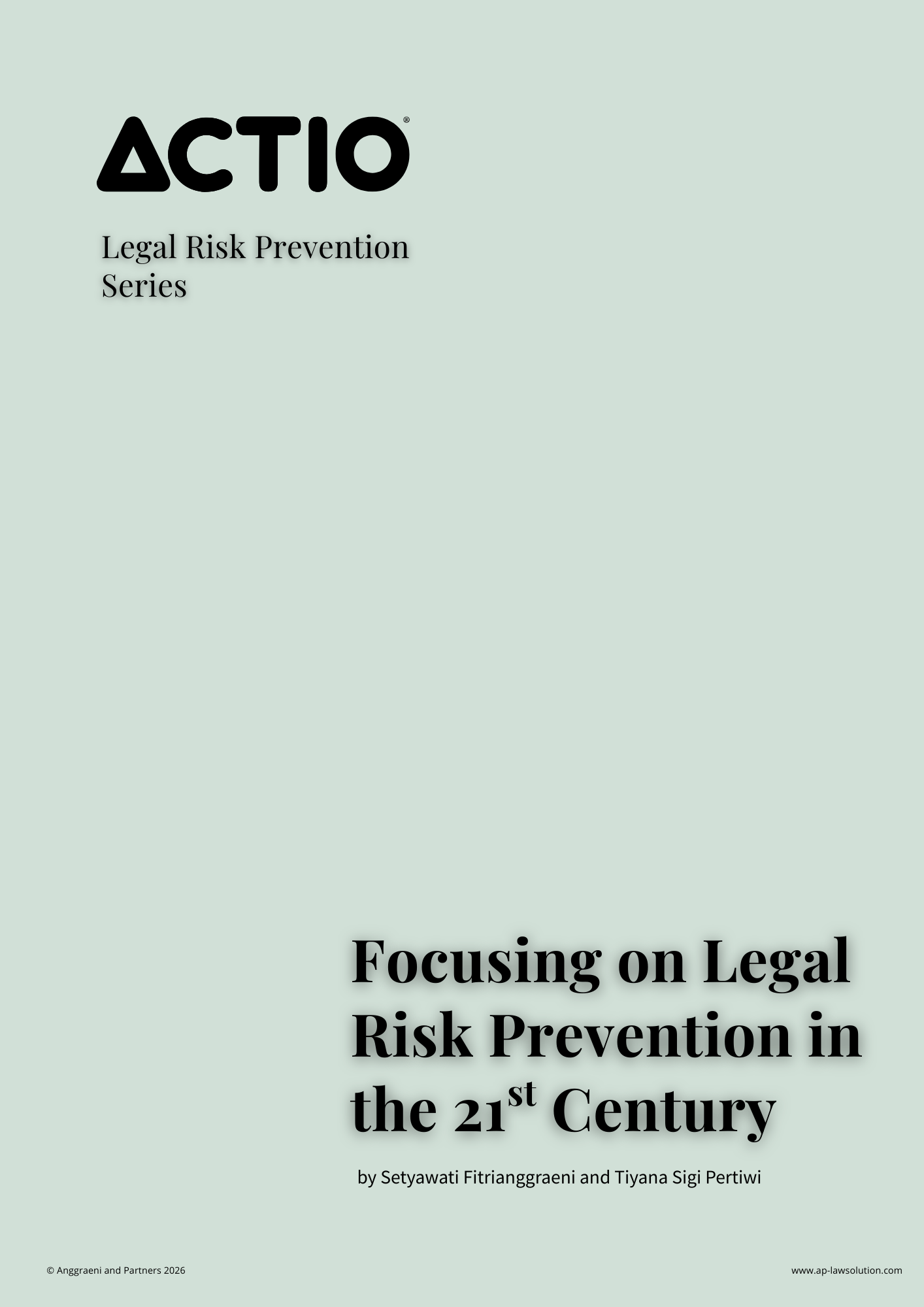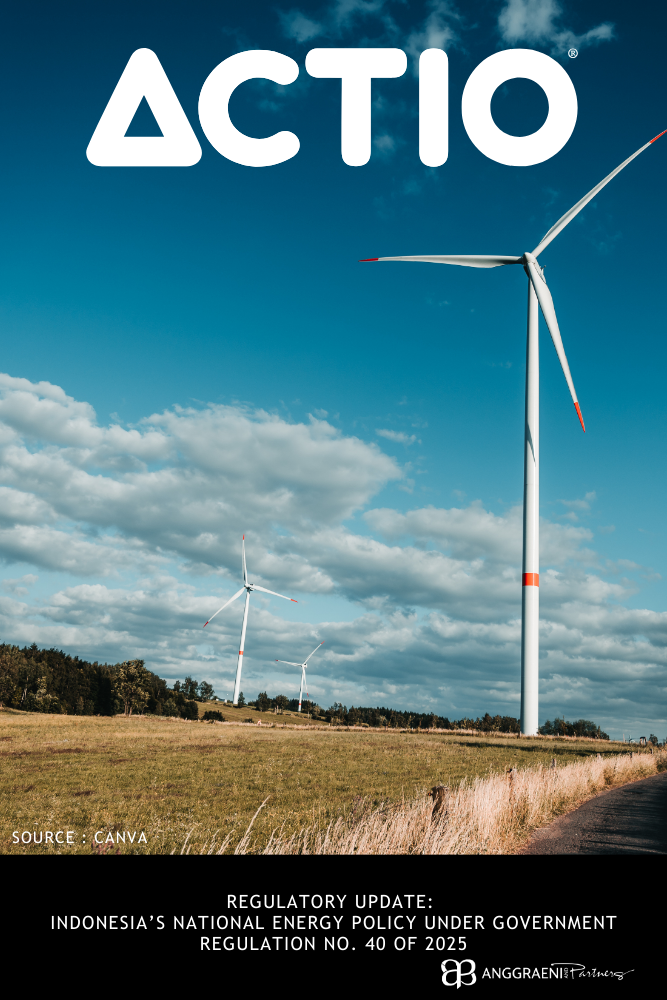- Home
- Capabilities
- ACTIO® Hub
- About Us
- Connect with Us
- AP Library
by Eva Fauziah & Sri Purnama. Originally published in the Indian Journal of Arbitration Law (IJAL), an open-access student journal. with title “The Issuance of the Supreme Court Regulation No. 3 of 2023: An Assessment of Its Impact on Promoting Arbitration in Indonesia.” Indian Journal of Arbitration Law, 12(2), pp. 100-126.
In the realm of dispute resolution, arbitration has emerged as a compelling alternative to traditional litigation. It offers a streamlined process, allowing parties to tailor the resolution to their specific needs while maintaining confidentiality. This is particularly crucial in business disputes where sensitive information and relationships are at stake.
Indonesia, like many countries, has recognized the value of arbitration and established a legal framework to govern its practice. The Law Number 30 of 1999 on Arbitration and Alternative Dispute Resolution (AADR Law) has been the cornerstone of arbitration in the country. However, over two decades have passed since its enactment, and the law has remained largely unchanged.
The global landscape of arbitration has evolved significantly during this time, with new practices and standards emerging. This has created a disconnect between the AADR Law and the contemporary needs of arbitration in Indonesia. While the law still functions, its lack of alignment with modern practices poses challenges, particularly in disputes involving international parties.
The Supreme Court of Indonesia has recognized this issue and taken a significant step towards modernization. The Supreme Court Regulation Number 3 of 2023 (SCR 3/2023) introduces new provisions aimed at filling the gaps in the AADR Law and aligning Indonesian arbitration practices with international standards. This regulation addresses procedural aspects such as the appointment of arbitrators, rights of recusal, and the examination of enforcement and annulment of arbitral awards.
This article series delves into the intricacies of SCR 3/2023, analyzing its potential to promote arbitration in Indonesia. It explores the historical context and evolution of arbitration in the country, highlighting the limitations of the AADR Law and the need for reform. The subsequent articles will examine the key features of SCR 3/2023, assess its impact on arbitration practices, and offer critical insights and recommendations for further improvement.
DISCLAIMER:
This disclaimer applies to the publication of articles by Anggraeni and Partners. By accessing or reading any articles published by Anggraeni and Partners, you acknowledge and agree to the terms of this disclaimer:
No Legal Advice: The articles published by Anggraeni and Partners are for informational purposes only and do not constitute legal advice. The information provided in the articles is not intended to create an attorney-client relationship between Anggraeni and Partners and the reader. The articles should not be relied upon as a substitute for seeking professional legal advice. For specific legal advice tailored to your individual circumstances, please consult a qualified attorney.
Accuracy and Completeness: Anggraeni and Partners strive to ensure the accuracy and completeness of the information presented in the articles. However, we do not warrant or guarantee the accuracy, currency, or completeness of the information. Laws and legal interpretations may vary, and the information in the articles may not be applicable to your jurisdiction or specific situation. Therefore, Anggraeni and Partners disclaim any liability for any errors or omissions in the articles.
No Endorsement: Any references or mentions of third-party organizations, products, services, or websites in the articles are for informational purposes only and do not constitute an endorsement or recommendation by Anggraeni and Partners. We do not assume responsibility for the accuracy, quality, or reliability of any third-party information or services mentioned in the articles.
No Liability: Anggraeni and Partners, its partners, attorneys, employees, or affiliates shall not be liable for any direct, indirect, incidental, consequential, or special damages arising out of or in connection with the use of the articles or reliance on any information contained therein. This includes but is not limited to, loss of data, loss of profits, or damages resulting from the use or inability to use the articles.
No Attorney-Client Relationship: Reading or accessing the articles does not establish an attorney-client relationship between Anggraeni and Partners and the reader. The information provided in the articles is general in nature and may not be applicable to your specific legal situation. Any communication with Anggraeni and Partners through the articles or any contact form on the website does not create an attorney-client relationship or establish confidentiality.
By accessing or reading the articles, you acknowledge that you have read, understood, and agreed to this disclaimer. If you do not agree with any part of this disclaimer, please refrain from accessing or reading the articles published by Anggraeni and Partners.
For further information, please contact:
P: 6221. 7278 7678, 72795001
H: +62 811 8800 427
Anggraeni and Partners, an Indonesian law practice with a worldwide vision, provides comprehensive legal solutions using forward-thinking strategies. We help clients manage legal risk and resolve disputes on admiralty and maritime law, complicated energy and commercial issues, arbitration and litigation, tortious claims handling, and cyber tech law.
S.F. Anggraeni
Managing Partner
Eva F Fauziah
Senior Associate Practice Group International Arbitration and Litigation and Head of Legal Lab.
eva.ff@ap-lawsolution.net
Sri Purnama
Junior Legal Research Analyst
sri.p@ap-lawsolution.net


